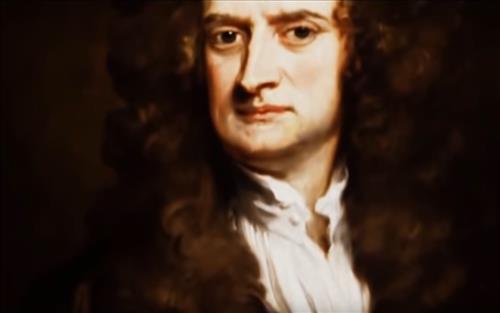
Isaac Newton’s wide range of discoveries, including his groundbreaking work on the laws of motion and gravity, formed the basis for modern physics, but arguably his true genius comes from how he applied those theories to the universe at large, explaining the motions of the Sun and planets in a way that had never been done before.
His book, “Principia Mathematica”, still remains one of the most influential texts in recorded history. In it, Newton breaks down the workings of the solar system, explaining the nature planetary orbits and the pull between heavenly bodies. By describing why the Moon orbits the Earth and not vice-versa, the book literally changed the way people saw the world.
In 1936 a huge collection of scientific documents and personal papers was put up for auction at Sotheby’s in London from the great scientist Isaac Newton. A veritable treasure trove of knowledge to essay starting what these papers have never been seen by the public and a large number of them were bought by the famous British economist John Maynard Keynes.
Many were written in secret code and for six years Keynes struggled to decipher them he hoped they would reveal the private thoughts of the man who invented a new branch of math called calculus, figured out the composition of light, and gave us the laws of gravity and motion which governed the universe.
The man who is considered the founder of modern science Sir Isaac Newton Newton. The Newtonian age and its promised on the concept that everything virtually in the universe was amenable to scientific understanding.
Newton’s work has a beauty and simplicity and an elegance that makes it the greatest work of science ever done.
But what Keynes found shattered his image of Isaac Newton for in these manuscripts Keynes discovered an Isaac Newton unknown to the rest of the world. He found an Isaac Newton who seemed obsessed with religion, alchemically, and devoted to the occult.
William R. Newman on Why Did Isaac Newton Believe in Alchemy . Astrology, alchemy, element theory, these pseudosciences have been long replaced by chemistry and psychology and such, but in Newton s day science and ancient knowledge were more entwined. One can t forget the Newton poured through ancient texts looking for cryptographic codes when asking themselves why did Newton believe in alchemy? , but one also shouldn t forget that part of alchemy and element theory become chemistry and part of astrology becomes astronomy.